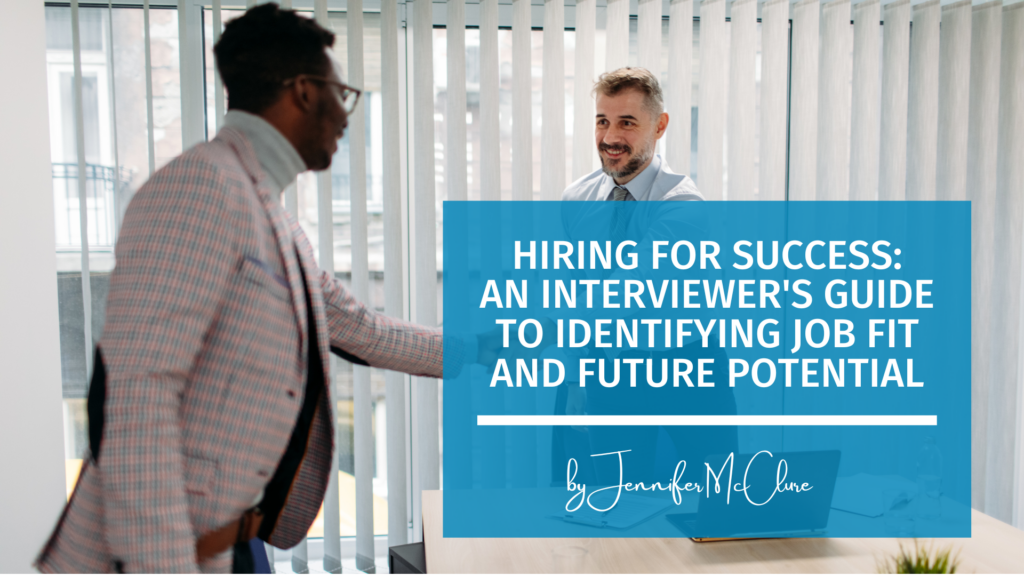Recently, for a student research project, I was asked to provide my thoughts on the skills that I believe are essential for young professionals entering the workforce, as well as how I would assess these skills in internal or external job applicants.
Below are the questions that were asked of me, as well as my responses.
Question 1: What specific knowledge, skills, and abilities do you look for in new applicants?
Generally, I look for curiosity, communication skills, problem-solving ability, and a desire to learn and grow. If an applicant has these skills and abilities, then they can be developed, and can grow into a variety of roles over time.
Specifically, I would also look for basic qualifications and experience to do the specific job that they’re applying for. Unless it’s a truly entry level position, ideally, they will have some education, volunteer experience, or work experience related to the job that they can demonstrate through results they’ve previously been able to achieve.
When interviewing, I’m always interested in hearing from applicants how they improved something in a previous or current role, and how they approached specific challenges or assignments. I want to be able to understand how they’re oriented towards solving problems, taking on challenges, and pushing through resistance.
Question 2: Which of these knowledge, skills, and abilities do you think are the most important for candidates to have, in order to advance in their career?
I place a priority on a candidate’s desire to learn and grow, and curiosity to seek out opportunities or problems/challenges that need to be solved in order for the company to successfully achieve its goals.
I want to understand if they’re intellectually curious enough to ask great questions in order to understand the current state/desired state? Also, do they seek out growth opportunities?
Question 3: What factors are considered more heavily in the hiring process – previous experiences, qualifications, or an applicant’s performance during the interview?
The answer to that question will depend upon the position level that I’m hiring for.
For entry level positions, I would focus more on the interview, education and qualifications, but as mentioned above, I’d be looking more for learning ability, curiosity, and growth orientation.
For mid-level or senior roles, previous work experience is going to weigh more heavily, but I would also be looking for the same things that I do with entry-level folks. However, I’d be asking candidates to share specific examples of how they’ve demonstrated the skills required in the job in one or more of their previous roles or life experiences.
Question 4: How does utilizing past experiences and examples from their work history help candidates to address difficult interview questions and demonstrate qualifications for a role?
I believe that it’s critical for interviewees to have some examples prepared in advance to show how they’ve demonstrated specific skills or abilities in their past jobs, education, or volunteer experiences, as well as how they have gotten results. A Career Coach I worked with once called these CAR (Challenge / Action/ Result) stories, and I’ve also heard them called STAR (Situation / Task / Action / Result) stories.
If an applicant prepares several examples from their experience that they can put into one of these frameworks prior to interviews, then they can be utilized to effectively answer many behavioral interview type questions – those “Tell me about a time when…” questions.
As an interviewer, when I ask a behavioral interview question, I’m not necessarily interested in the actual story the person is telling me as a response. I’m looking to understand their thinking process, how they approach challenges or responsibilities, how they respond when things don’t go as planned, how they involve others, etc. If the end result is a win, that’s great, but I think there are also good stories that can be shared where the end result wasn’t what was expected or hoped for, but the applicant can work in what they learned from the “failure”, and how they approached recovering from the failure in order to achieve the desired results.
—
Obviously, a good interview requires much more in-depth discussion and questioning, but in general, for the purpose of this study, I tried to sum up some of the key skills to look for in candidates that I believe make the best hires for not only the current job opening the candidate is being considered for, but also to have the best chance for future growth and success with the company.
___________________________
As a keynote speaker and leadership coach, Jennifer McClure helps leaders to embrace the future of work, and to develop the skills necessary to lead their organizations and the people on their teams to take bold actions that positively impact business results.
Want more leadership and future of work insights from me?
SUBSCRIBE to get my weekly Impact Makers newsletter delivered to your inbox!

